Publications
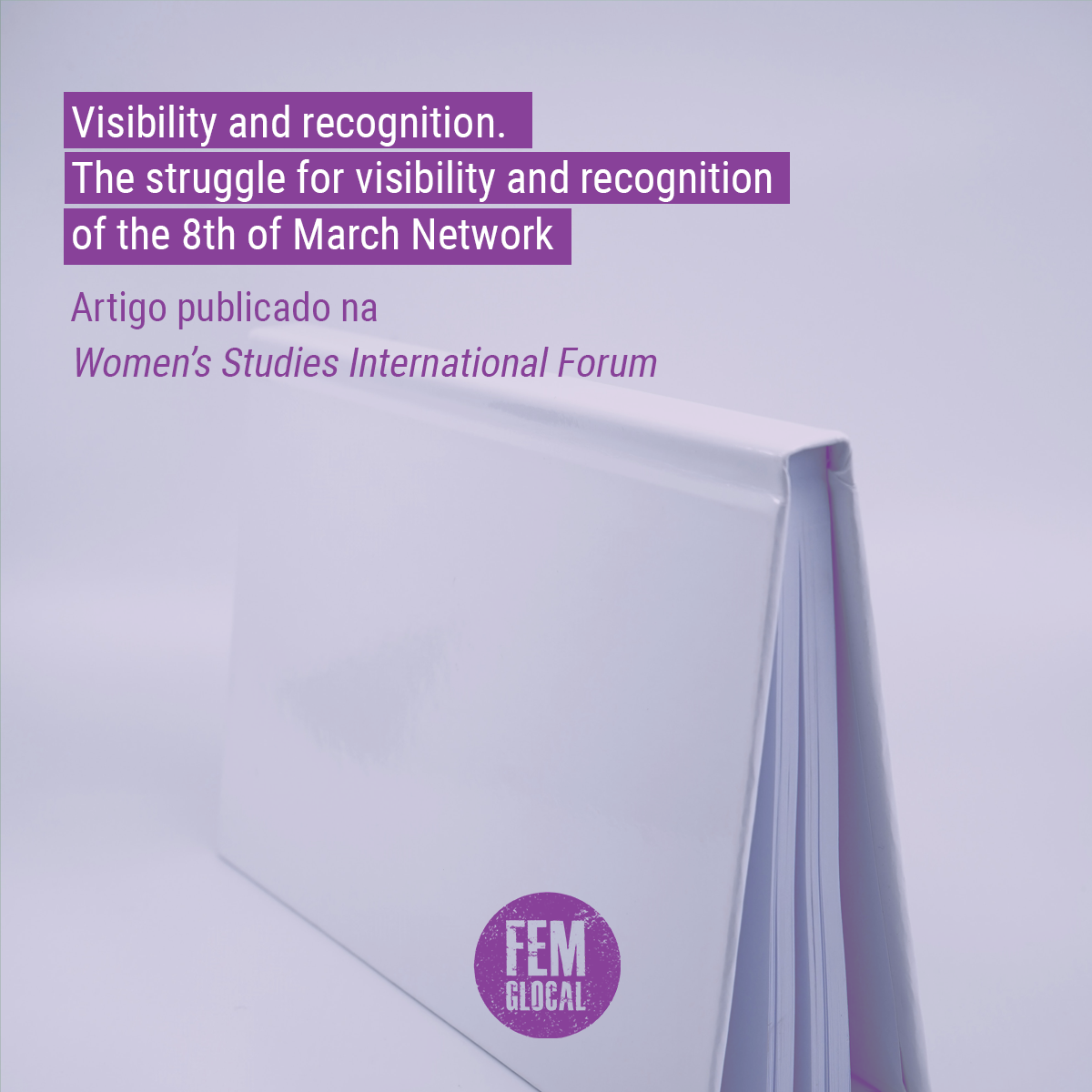
Visibility and recognition. The struggle for visibility and recognition of the 8th of March Network
Women’s Studies International ForumThe aim of this article is to analyse the modes of visibility used by the 8th of March Network (Portugal) in the International Feminist Strike, on International Women's Day. Considering that the visible and the invisible are inseparable, and that visibility is intervisibility and sociability – where reciprocal visibility forms the foundation of human interaction and social relationship – this analysis focuses on examining the five Manifestos of the 8th of March Network, spanning from 2019 to 2023, to answer the central question of which mode(s) or regime(s) of visibility it employs.
The problem of recognition is also addressed, insofar as many struggles for visibility are also struggles for recognition, which this analysis considers to be the case. Once this is understood, the five Manifestos of the 8th of March Network, from 2019 to 2023, are analysed by applying the conceptual frameworks of Brighenti's regimes of visibility (2010) and Honneth's modes or forms of recognition (2003).
Citation:
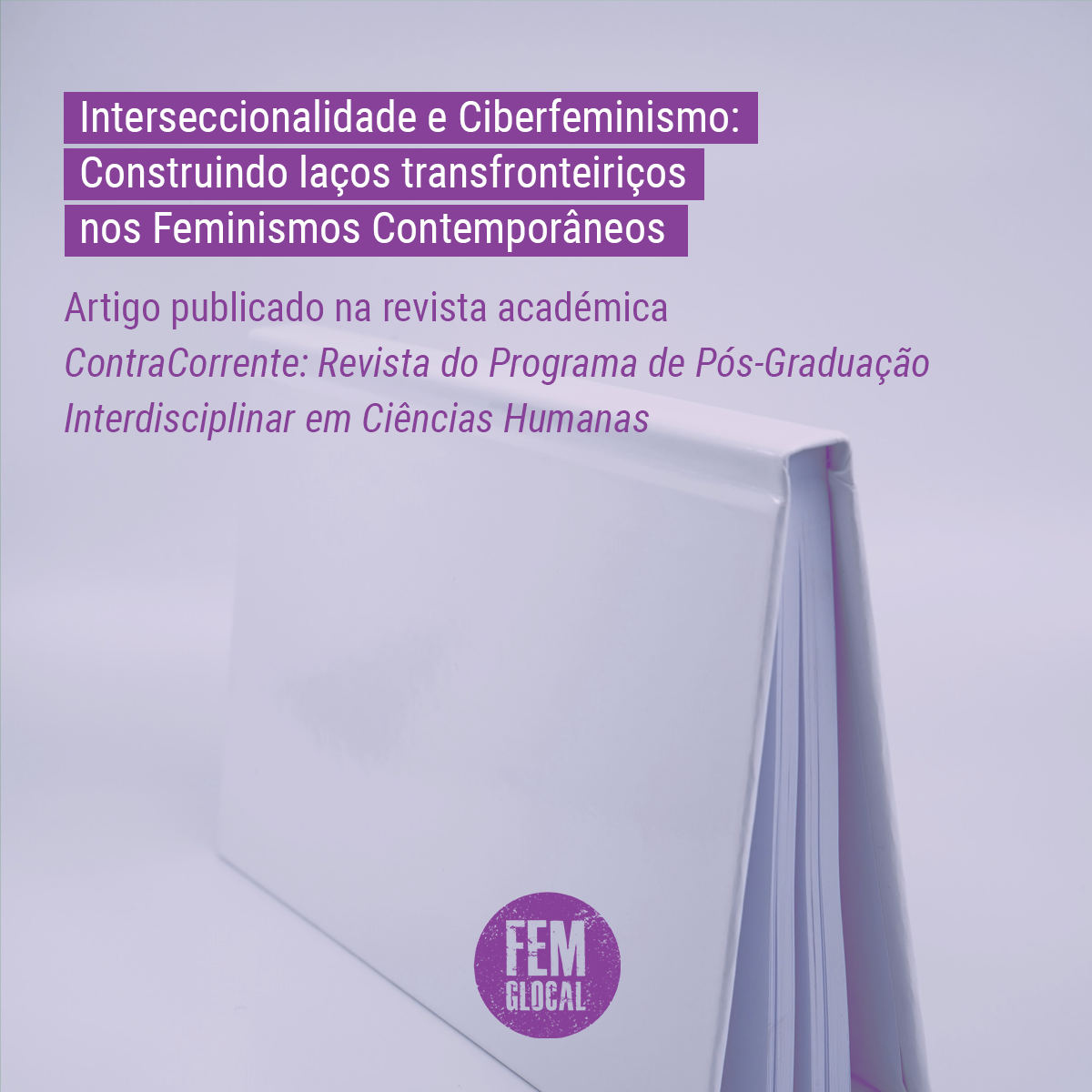
Ciberfeminismo e interseccionalidade: Construindo laços transfronteiriços nos Feminismos Contemporâneos
ContraCorrente: Revista do Programa de Pós-Graduação Interdisciplinar em Ciências HumanasContemporary feminist movements emerge on a global scale and with reflections also at the local level, thus assuming a clear transnational dimension from street demonstrations and feminist digital activism - cyberfeminism. Resorting to the narrative of waves, the fourth feminist wave, characterized, especially, by emerging from cyberspace, guarantees to feminisms, therefore, a diverse and plural character in the vindication of greater inclusion of differences, emphasizing intersectionality. Thus, the aim of this study is to try to understand the construction of these feminisms through cyberfeminism and its relationship with intersectionality, a fundamental theoretical-methodological mechanism for all contemporary activisms. We resort to a qualitative approach based on bibliographical survey, in addition to practical cases of cyberfeminist action that have burst into cyberspace. We argue that this new feminist wave has intersectionality as its constitutive pillar, consolidating cyberfeminism as a power of collective and connected action, transnational and concerned with the inclusion of diverse identity representations.
Citation:
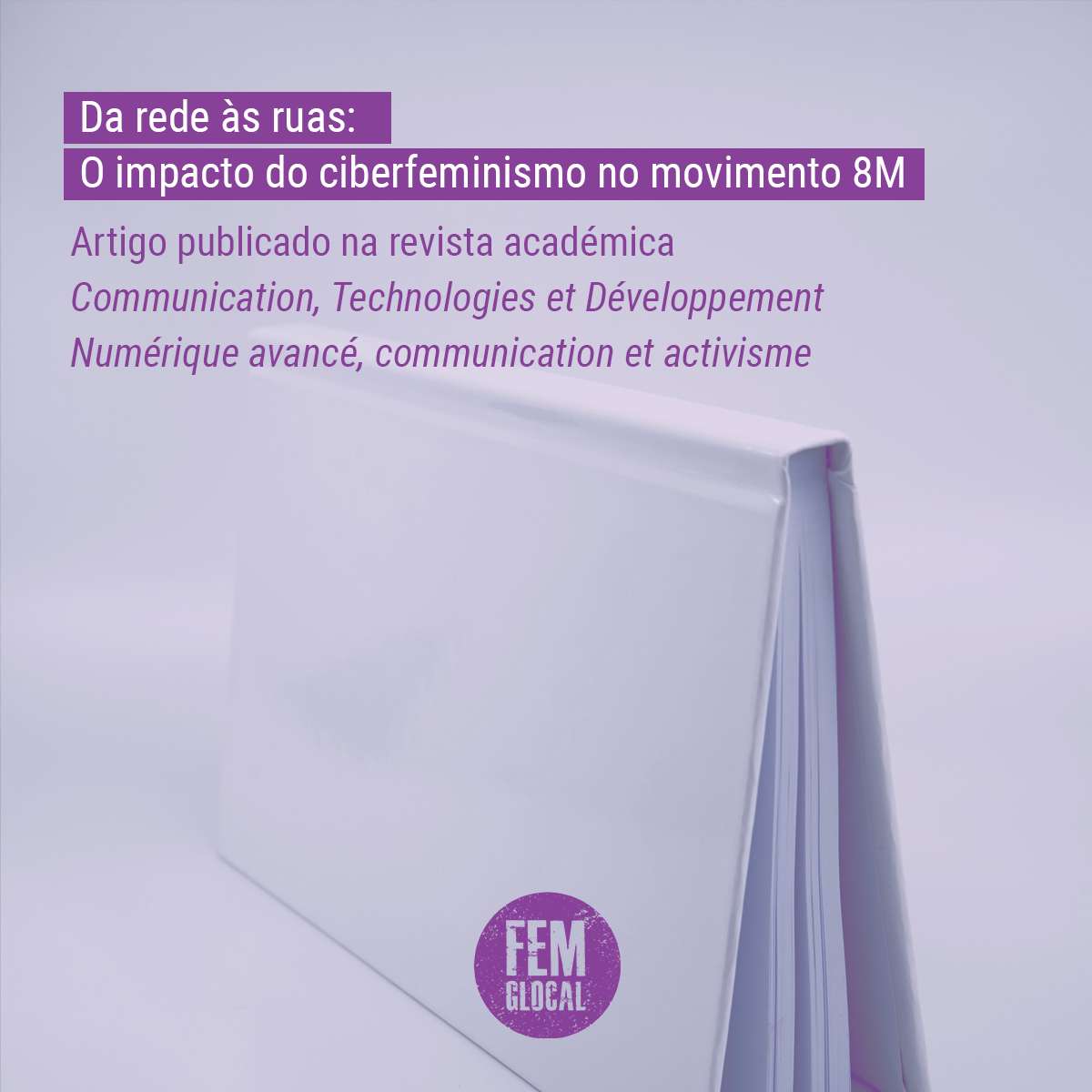
Da rede às ruas: o impacto do ciberfeminismo no movimento 8M
Communication, Technologies et Développment, 13, Numérique avancé, communication et activismeContemporary feminist movements have emerged in a global sphere, with local repercussions, giving them a notorious transnational dimension through street demonstrations and cyberfeminism. This study explores the impact of cyberfeminism on the 8M movement, the International Feminist Strike, specifically in the Portuguese context, to understand how feminist digital activism has contributed to the mobilization and amplification of the movement's objectives in the country. We examine how the technological tools used by feminists between 2020 and 2021 have enabled the strike to expand, connecting women nationally and internationally, as well as facilitating the effective dissemination of feminist information and agendas. We highlight the use of the Instagram platform as a strategic tool in the propagation and understanding of gender dynamics in the digital space and in society in general. The results show that cyberfeminism is driving the 8M movement in Portugal, broadening the debate by including multiple voices, even though a white hegemony is identified in its composition and construction.
Citation:
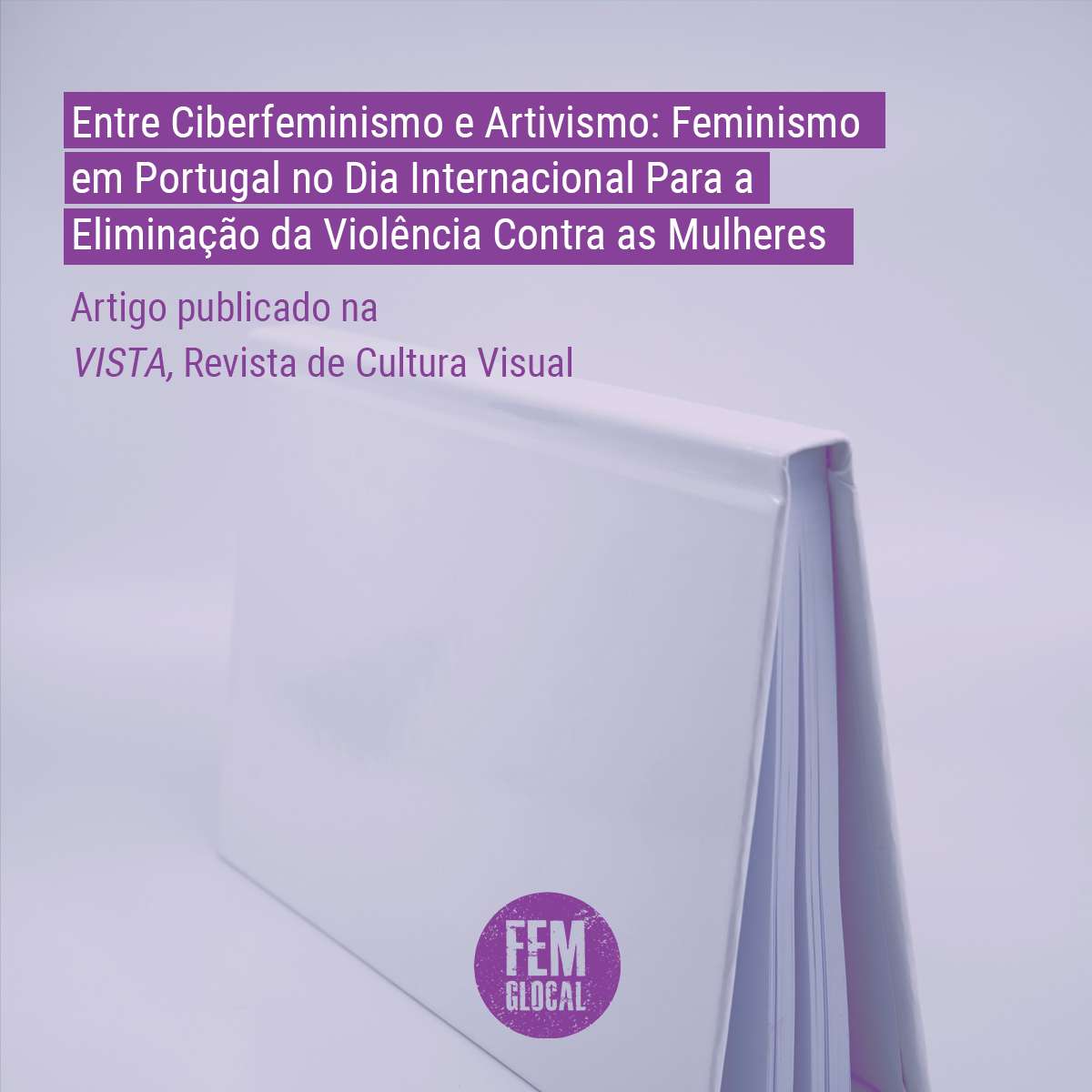
Entre Ciberfeminismo e Artivismo: Feminismo em Portugal no Dia Internacional Para a Eliminação da Violência Contra as Mulheres
Vista, 11, Article 11Visual content has been a valuable resource since the creation of the cyberfeminist movement. Together, artivism and the feminist movement aim to decolonise artistic and exclusivist knowledge while also raising awareness of women's issues, especially concerning various forms of gender-based violence. Thus, the main aim of this article is to ascertain how cyberfeminists resorted to feminist artivism to celebrate the International Day for the Elimination of Violence Against Women in Portugal in 2021. To do so, Instagram posts by 10 Portuguese feminist organisations and collectives, posted on 25th November, were analysed through content analysis, and the data divided into online and offline measures — permanent proof of cyberfeminism as a border connecting these mediums. It is worth noting that artivism operates within the current Portuguese feminist movement as a strategic and political tool for the dispersal and propagation of cyberfeminism.
Citation:
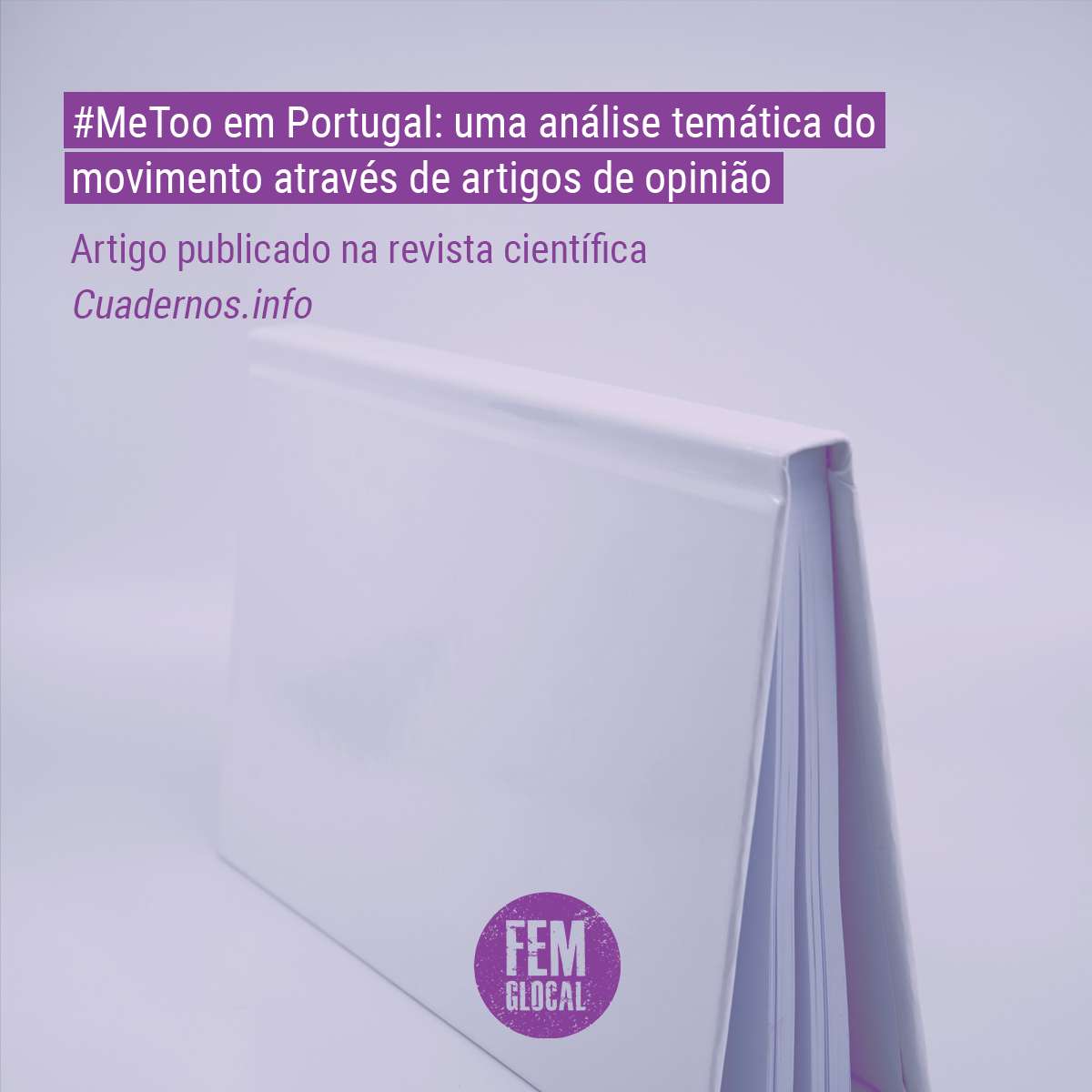
#MeToo em Portugal: Uma análise temática do movimento através de artigos de opinião
Cuadernos.info, 55, 1-21#MeToo is one of the feminist movements driven by the digital and with glocal expression. Turned viral through Twitter, it quickly gained visibility in traditional media, bringing to the public sphere the discussion of topics related to sexual harassment and violence. Using the public expression of the #MeToo movement in the Portuguese traditional media between 2017 and 2022, and based on a qualitative methodology anchored in a thematic analysis of 91 opinion articles of the newspapers Expresso and Público, this paper aims to comprehend the particularities of the Portuguese context around #MeToo issues and analyze the themes that were highlighted in these spaces. Three major themes arise: Sexual Harassment and Violence; Questioning (re)victimization and normalization; Ambivalence of feminisms in the #MeToo movement. From our findings, the emergence of contradictory discourses about the movement that served to both discredit it and raise public awareness of the problems of sexual harassment and violence stands out. In conclusion, opinion articles have the power to both influence the crystallization of specific positions and the change of attitudes and behaviors in the public sphere due to the authority and legitimacy of those who write opinion pieces in the newspapers and have the ability to thematize the public sphere.
Citation:
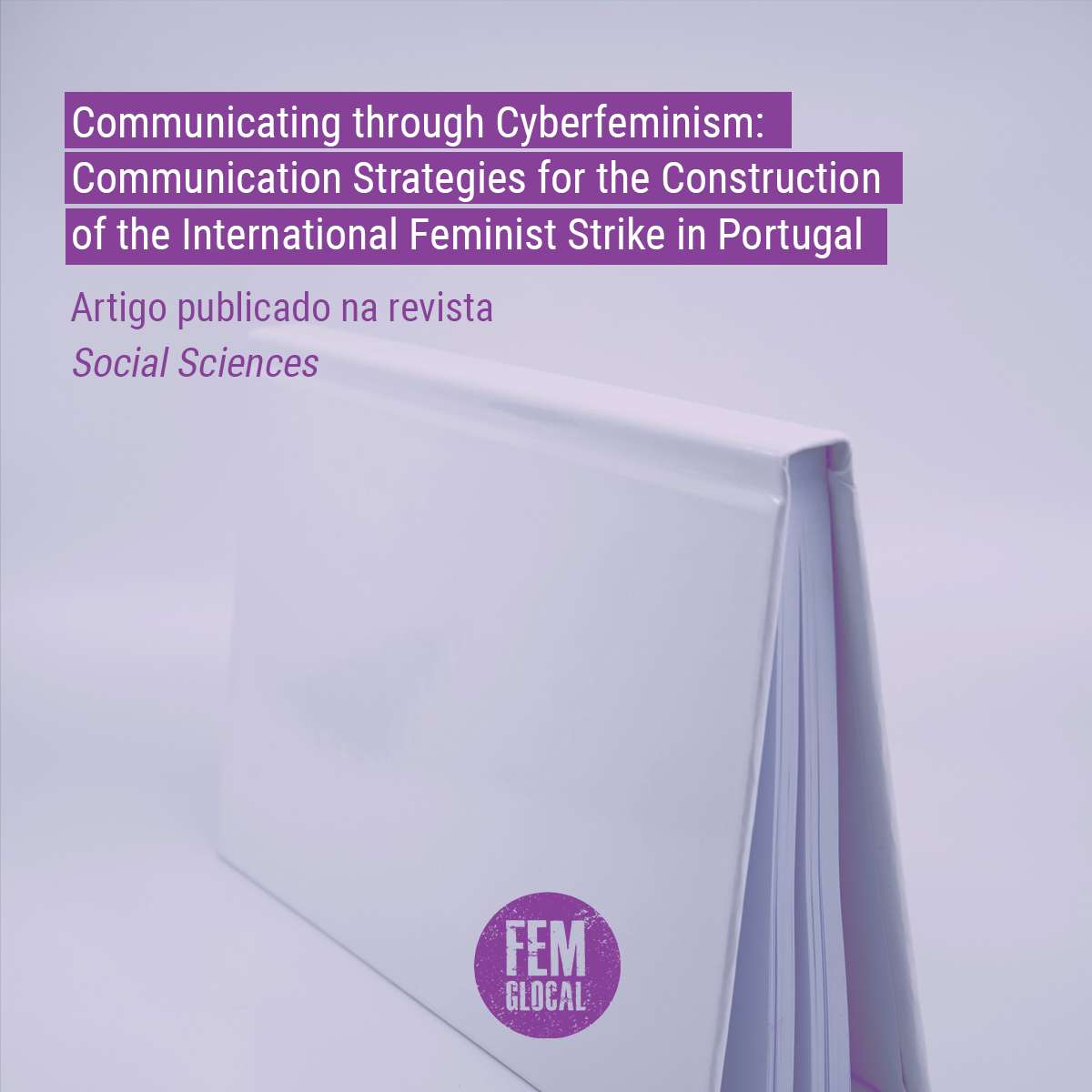
Communicating through Cyberfeminism: Communication Strategies for the Construction of the International Feminist Strike in Portugal
Social Sciences, 12(9), 473Despite the considerable attention given to how mainstream media portrays feminism and social movements, there remains a notable research gap regarding the exploration of how these movements themselves engage in internal articulation and employ communication strategies to connect with their publics. To examine communications practices of cyberfeminists within the fourth wave of feminism and the 8M movement (feminist strike), this study analyzes the communication platforms utilized by Rede 8 de Março, which mobilizes the strike in Portugal in three dimensions: (1) institutional and internal communication; (2) content production for online dissemination on digital platforms; and (3) mobilization strategies and action repertoires. Specifically, we focus on the years 2020 and 2021, considering the pandemic context, using a combination of netnography and semi-structured interviews with organizing activists. Our findings indicate a significant rise in Instagram’s platform utilization and exploration, concomitant with the establishment of WhatsApp as a central tool for both organizational and internal communication. These observations enhance our scholarly grasp of the intricate communication dynamics inherent in these organizational contexts and feminist movements, thereby offering significant contributions to our understanding of its operational mechanisms.
Citation:
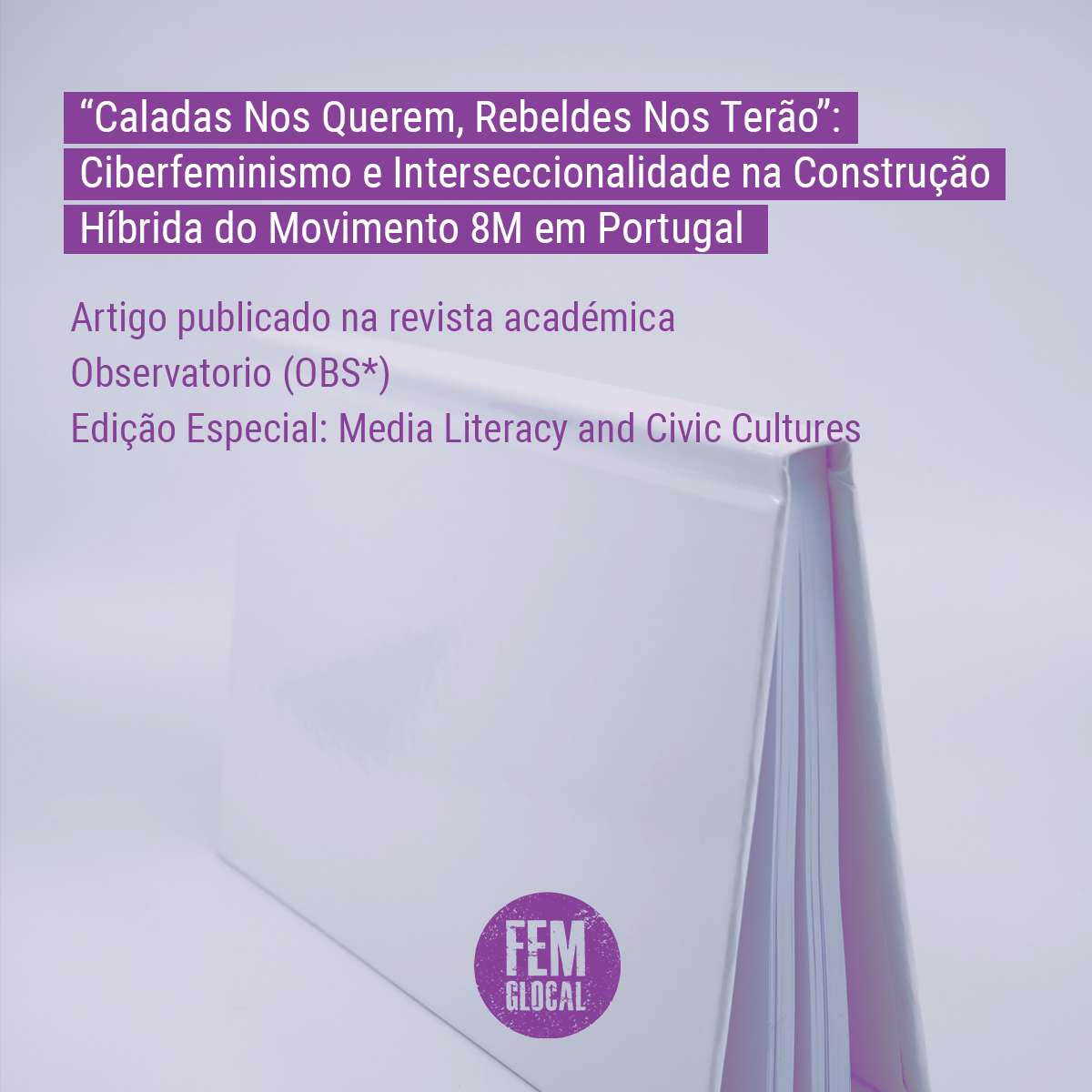
“Caladas Nos Querem, Rebeldes Nos Terão”: Ciberfeminismo e Interseccionalidade na Construção Híbrida do Movimento 8M em Portugal
Observatório (Obs*), 16(Special Issue), 119 – 137This article explores cyberfeminist participation, with a focus on the 8M movement, the most recent international feminist strike front, which repoliticizes the feminist movements of this century (Arruzza et al., 2019), and is characterized as a mobilization that is a consequence of the association between the online and the street (Zimmerman, 2017). To better understand the construction of intersectional feminism through digital activism, we performed a netnographic analysis of the Instagram profile of the Rede 8 de Março, which organizes the strike in Portugal, during the month of March 2021 — still in pandemic period — evidencing the use of hybridity as a tool for construction and mobilization. After the analysis, semi-structured interviews were carried out with participants of the collective that organizes the strike. The main results reveal the recurrence of themes around misogyny violence and domestic work and show the importance of hybrid feminist activism in the construction of a transnational movement.
Citation: